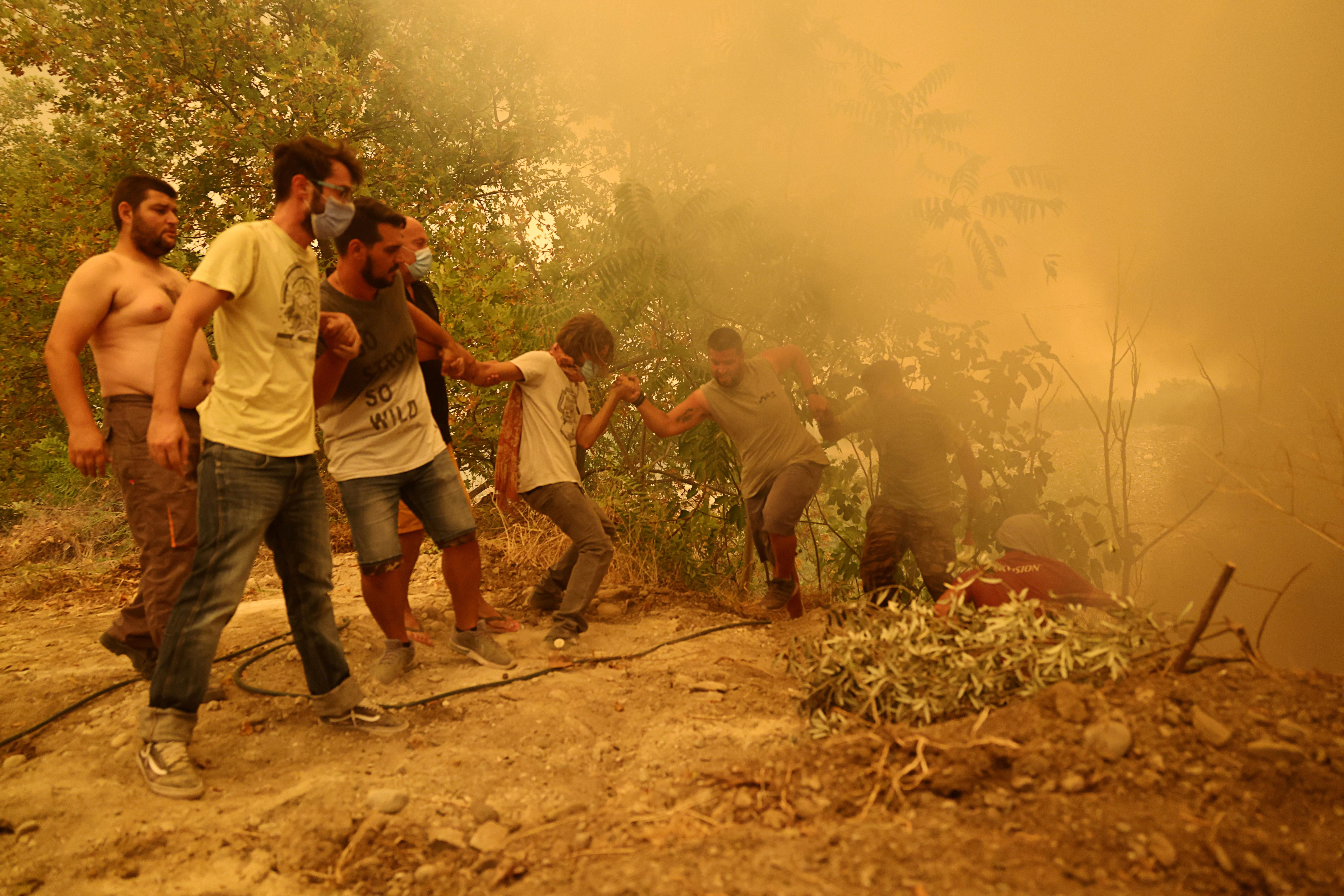Fire and anger spread in Greece: The Greek island of Evia and surrounding areas have been ablaze for almost two weeks now, destroying hundreds of homes and ripping through more than 56,655 hectares of land. As the climate-linked wildfires have spread to the greater Athens area and beyond, public anger with the government has been boiling over, too. Local officials say that the national government has failed to provide adequate support for hard-hit communities, including aerial reinforcement needed to help put out fires raging through the forests. Critics also say that in many places, ill-equipped fire crews are relying on locals to help save homes and forestry from multiple blazes. PM Kyriakos Mitsotakis, for his part, apologized (sort of) for any shortcomings in the government response, but said that his government had done whatever it could to tackle a natural disaster of "unprecedented dimensions." But angry residents pushed back, arguing that despite previous assurances, Athens didn't invest in recruiting more firefighters, as well as firetrucks and fire bombers even though there has been indication for some time that severe droughts and heatwaves are making wildfires more extreme — and frequent.
US military's vaccine mandate: In a massive development Monday, the Pentagon said that all active members of the US military — 1.3 million people across several military branches — will be required to get a COVID vaccine no later than mid-September. Those who refuse will face retribution, which could include administrative reprimands or even expulsion. US Secretary of Defense Lloyd Austin said that going forward, it would be near impossible to deploy unvaccinated US troops in countries with strict vaccination rules. Additionally, a COVID outbreak within the US military would also undermine its ability to aptly respond to dangerous situations. To date, around 65 percent of active-duty personnel are at least partially vaccinated, while that number hovers at a much lower 50 percent for members of the Army. For months, both the Department of Veterans Affairs and the military have been struggling with lower-than-hoped for vaccination rates within their ranks. But legal experts warn that the Biden administration and the Pentagon should brace for pushback in the form of lawsuits from those who refuse to get the shot.
Kim Jong Un's sister on a rampage: Kim Yo Jong, the influential sister of North Korea's supreme leader, is lashing out at South Korea and the US for holding annual joint military drills that Pyongyang demanded be cancelled amid a recent thaw with the South. What's more, Kim Yo Jong is also threatening more nuclear activity because of Seoul's drill with Washington, and proceeded to ghost the South Koreans on the bilateral hotline recently reestablished by the two countries a year after Pyongyang cut off communication. To be sure, it's hard to know what the North Koreans are really thinking, but perhaps Kim Yo Jong's antics are, at least in part, aimed at the Biden administration, which has shown little interest in engaging with the Kims since Joe Biden became US president, unlike his predecessor. It's not uncommon for the North Koreans to make outrageous statements when they feel they're being shafted, nor when they want to deflect attention from serious problems like a COVID-fueled economic crisis or looming famine. Regardless, if this tone continues, the latest détente with the South will likely be short-lived.
More For You
People in support of former South Korean President Yoon Suk Yeol rally near Seoul Central District Court in Seoul on Feb. 19, 2026. The court sentenced him to life imprisonment the same day for leading an insurrection with his short-lived declaration of martial law in December 2024.
65: The age of former South Korean President Yoon Suk Yeol, who was sentenced to life in prison on Thursday after being found guilty of plotting an insurrection when he declared martial law in 2024.
Most Popular
In an era when geopolitics can feel overwhelming and remote, sometimes the best messengers are made of felt and foam.
The Hungarian election is off to the races, and nationalist Prime Minister Viktor Orbán is facing his most serious challenger in 16 years.
Does skepticism rule the day in politics? Public opinion data collected as part of the Munich Security Conference’s annual report found that large shares of respondents in G7 and several BRICS countries believed their governments’ policies would leave future generations worse off.
